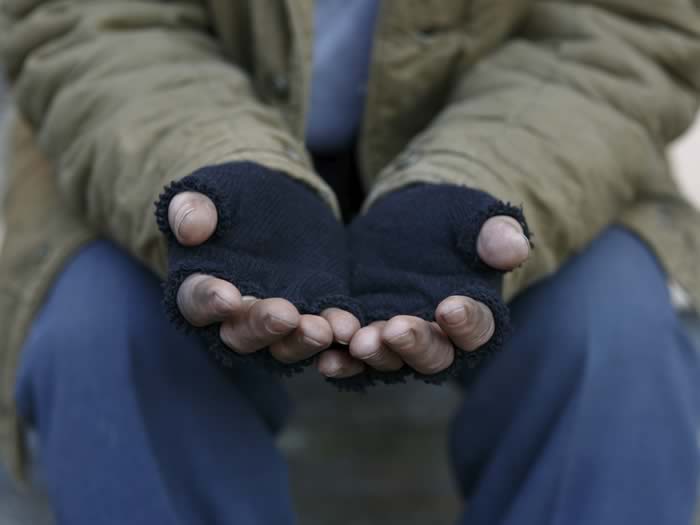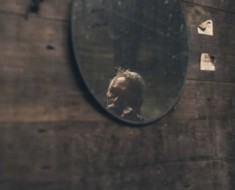Isaiah 9:1-4
2 Peter1:16-21
The powerful evocative words from Isaiah are part of our religious inheritance. His vision is of a great light bringing illumination to a land of deep darkness, and the breaking of a yoke, heavy against the shoulders of an oppressed people.
Potent images of release and promise. Pictures in stark contrast to how so many people lived then, and live now. During this week churches around the country are invited to think about and address the reality of how many people have to live in our country and to consider ways in which their burdens might be – if nothing else – at least eased.
It doesn’t take much effort of imagination to identify the burdens (the yoke) that some people have to wrestle with and endure today, and the gloom that consequently may surround them. Debt, and fear of the loan sharks who – without government intervention – sometimes charge horrendous interest. Bad accomodation – overcrowding, so that there is no room for you as an individual and actual homelessness.
Having a home, but with fears of re-possession because you are behind on your mortgage re-payments. Unemployment or unrewarding work at or below the minimum wage, chronic sickness aggravated by poor diet and lack of personal care, laws preventing asylum seekers from working and therefore putting them at social risk, being a poor person in a city such as Bath that glorifies wealth. All of us have our problems but some of us are ground down by them. Indeed for some a ‘land of deep darkness’.
You may say, that’s sad and all part of living in a totally commercially-driven culture where human rights and the responsibilities of society too easily surrendered to the economic tyranny of ‘market forces’. ‘Force’ is a good way to identify the power of the economy we live under. But when you compare the situation of homeless people in this country, with the mass destitution of thousands upon thousands in many parts of the wider world, well it is at least disproportionate, you may say, to get too bothered about a local problem.
There is so much need in the world. Our minds are haunted by the destitution and savagery that exists in so many places, unresolved crises from social revolution and natural disasters that continue and fester. One of the moral achievements of our present government – and would there were more –is its determination to continue the level of overseas aid, modest though it is. You might say isn’t that where we need to be concentrating? But our aid to the millions in the world who are destitute is a bit hypocritical if we don’t at the same time attend to the people at our door and in our own land.
You might also point out that Jesus was a poor man amongst the poor; he is even reported as once saying that the poor are always with us. He was able to see the essential character of a person and recognised that often when people are at their lowest they understand suffering, and are more able to know what’s really important in human relationships. But he chose poverty; it was his way and how he was. Without the encumbrance of wealth he was free to see the presence of God’s Kingdom around him. For many of our countrymen, poverty however is not chosen, is not their preferred way, but is thrust upon them. The poor may have much to teach us, but they do not deserve to be left in their poverty.
Poverty in our country is often hidden but there is a standard definition of what we mean by it, and how academics, sociologists and politicians describe it. They define poverty as when people lack the resources to obtain the type of diet that creates good health, or are unable to share in the activities and have the living conditions and the amenities that are customary or approved of in the societies to which they belong. Their resources are so seriously below those commanded by the average family, that they are in effect excluded from the normal living patterns, customs and activities of the society around them.’ They become – in that horrible word – ‘marginal’ to the rest of us. Or worse still that even uglier word, they belong to the ‘underclass.’ Which suggests that the rest of us think we are the ‘over class’.
Things that many of us take for granted – a washing machine, TV , new clothes when we need them, a bank account, a car perhaps, are not available. No trendy clothes for the children, so that they stand out as different from most of the others at school, and no computer games that form the rivalry and conversation of so many of them. The wrong sort of food.
A few statistics. A person in this country who is considered to be in poverty is someone who receives less than 60% of the average income figure. The latest year for which household income data is available is 2008/09. 13½ million people in the UK were living in households then below this low-income threshold which is around a fifth of the population and an increase of 1½ million compared with four years previously, 2004/05. Around a third of all disabled adults aged 25 to retirement are living in low-income households. Over the last decade, the poorest tenth of the population have, on average, seen a fall in their real incomes after deducting housing costs. This is in sharp contrast with the rest of the income distribution, which, on average, has seen substantial rises in their real incomes. The richest tenth of the population have seen much bigger proportional rises in their incomes than any other group. We know about that, hence the public anger at the banking bonus culture.
.
What can we do about the inequity in our society??
We can look for facts amongst the myths. This is a well researched field. The charity ‘Housing Justice’ campaigns for justice for people with little voice themselves or a voice that we choose not to hear. Similarly Church Action on Poverty. And then there are brilliant initiatives like Julian House in Bath, a direct result of Christians seeing a need and doing something about it. Things are better than they have been particularly in the area of child poverty, although the new situation of massed unemployment, especially amongst the school leavers, and the lack of new ocial housing is a bleak outlook.
We can make plain our place in the human family in our thinking and in our practice. Christian fellowship has sometimes provided a way of escaping from the complicated business of being part of the great family of humankind. Any religion that takes you away from the commonwealth of life and into a separate society of like-minded people can lead you into a fantasy world that feeds upon itself. The Church is a sacrament, a sign of human fellowship and a way of deepening it, not an alternative to the real thing. We, who are the latter-day disciples of Jesus, are always having to re-think how best we may respond to his ways and words. And the thinking is never done. A nuisance, but there it is.
We cam combat the prejudices around us that suggest it’s entirely the fault of those who in need, rather than that they are partly the victims of a corporate cause. Poverty of life, in what ever form it takes, is an individual responsibility, but never mine alone. There are people who find it less easy than others to cope, are without the advantages many of us are born into, and although they may not make as dramatic an appeal as the broken and robbed man in Jesus’ story of the Samaritan, we can’t pass by on the other side as – and this is what hurts in Jesus’ story – the two travellers did, both of whom were religious. I know it of myself, but sometimes we are silent when cruel untruths are spoken, and we need to find the courage to speak up for human values and against the recitation of specious judgements.
We can get political. I was asked to preach a sermon to this lively and mutually supportive congregation in the suburbs of Sheffield. I was a little nervous for there was more than a possibility that my way at looking at the faith was not quite in keeping with that which was favoured by this church, which unlike others, was bursting at the seams with success. I was specifically asked to preach about what was then known in Methodism as ‘Mission Alongside the Poor’- support for work in the inner-city and neglected estates of the country. This was when social values were still dictated by the Thatcher years which have been extended by the debt fixation of the present government. By 9 o’clock the next morning my colleague had had six phone calls from members of the congregation complaining about politics being brought into religion. Well I know the dangers and each of us have their own political perspective. But politics is the way good things can happen and if the church is silent on issues that affect the wellbeing of our citizens – especially those least able to lobby for themselves – then we are culpable before God. The irony of nine bishops in the House of Lords arguing for the rights of the underprivileged whilst the government of the day appeals to popular prejudice doesn’t escape us. So what can we do?
We can sit down and work out our charitable giving and consider what options for charitable action may be open to us. To have a clear commitment to a charity that makes life better for some of our fellow citizens, and in the process to learn about them and their needs, means that we have joined at least one campaign for human betterment.
And with imagination and care, we can pray, for any action that we may take is part of the saving ministry of Jesus in the world, the on-going mission which by our commitment we join and share.
So let us pray now….
Creator and Redeemer God, we identify ourselves with the priorities of Jesus. His care for the poor, his glad acceptance of hospitality from people with homes to share, his suspicion of the rich and the powerful; his sensitivity towards women, the stranger in need, the sick, the prisoner and the outcast.
Grant us, good Lord, that same greatness of heart that it may open the doors of our minds and give us courage to choose a way of life that leads to healing and helpfulness. We have learned from Jesus that our neighbour is not just the person we know, like and understand, but the person in need whose path has crossed our own. We ask for the compassion that cares without anxiety, the respect that listens to people in trouble and the practical support that responds to their needs. Yours is a ministry of personal and global care; may we be part of it.
We pray for all people who seek justice,that those who make laws and those who administer them may seek the good of all people, especially those whose voice is not easily heard. We pray for the social ministry of the Churches in this country, that where our doctrines may divide us our common humanity may bring us together in the service of others. We bring before you in our prayers those for whom we have special care, especially those who are having a rough time and who it seems shoulder more than their fair share of pain and sorrow.
We pray for peace in every part of the world; for governments that put the rights of the people before their own delight in exercising power and gaining privilege. We pray for peace in the Middle East and in Africa, that the terror and turmoil of conflict may end and a shared concern for equity amongst all people may begin a new order of peace in the world. Indeed let justice roll on like a river, Lord, and righteousness like a never ending stream.
Amen.






Hey Brian…
Excellent piece
Great to know you are still soldiering on as we used to do in poplar in the 80s… check out http://gregsmith.synthasite.com/
for info about what I'm up to these days..
also http://www.pcan.org.uk